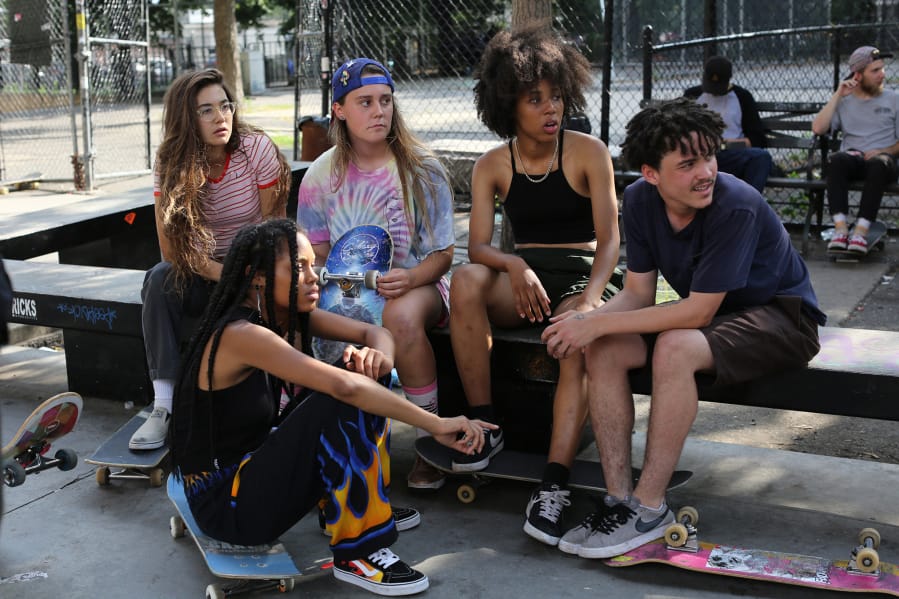In “Skate Kitchen,” newcomer Rachelle Vinberg plays Camille, a shy, quiet 18-year-old living with her mom in suburban Long Island. Camille’s passion is skateboarding — a pastime of which her traditional mother strongly disapproves — and one day, scrolling through Instagram, she happens upon a group of female skateboarders who regularly gather on the Lower East Side of Manhattan. Taking up her board and screwing up her courage, Camille makes a leap that is geographically negligible but psychically epic, opening up a big wide world of adventure, friendship, competition and heretofore unknown reserves of inner strength and resilience.
In many ways, “Skate Kitchen” plays out like previous coming-of-age tales of peril and self-discovery, from “Kids” and “Thirteen” to last year’s “The Florida Project.” As in those films, director Crystal Moselle here strives for unadorned realism, beginning with a cast of mostly nonprofessional actors. (The filmmaker reportedly discovered Vinberg — an accomplished skateboarder in real life — by way of her Instagram feed.) With the exception of Jaden Smith, on hand to play a red-haired, soft-spoken skater kid, the supporting ensemble is composed of members of the actual Skate Kitchen, a real-life posse of fearless, effortlessly charismatic young women whose feminist camaraderie is both inspiring and a little bit intimidating. Not incidentally, Moselle previously directed “The Wolfpack,” a riveting documentary about a family of brothers reared in a bubble of isolation within New York City. She again brings acute observational gifts to a different but similarly tribal group dynamic.
The plot of “Skate Kitchen” is conventional enough: When Camille begins to show interest in the ex-boyfriend of her new best friend (Ardelia Lovelace), complications ensue, et cetera, et cetera. But the beauty of the film isn’t to be found in its mechanics, or even the performances, which are often as awkward as they are spontaneous. Instead, it’s the movie itself — its rhythms; its tactful, unfussy point of view; its most compelling contradictions — that elevates it into something new. Moselle and cinematographer Shabier Kirchner film Vinberg and her fellow skaters with poetic, looping agility, following behind as they shred their way through Manhattan streets with ungovernable, even anarchic glee. Punctuating the film like dance numbers, these sequences present skateboarding not as a hobby, but as a means of liberation and self-expression.
The result is a movie that feels both hard-edged and dreamy; punk-rock and lyrical; wised-up and unbearably tender. Watching Camille and her crew skate, talk about girl stuff, party, explore their sexualities and just hang out in general plunges the viewer into that vertiginous moment when the exuberance of youth is giving way to the unease of aimlessness. Mostly, though, “Skate Kitchen” conveys the simple, exhilarating thrill of daring to claim social space, and proceeding to occupy it, with defiance and ecstatic grace.



